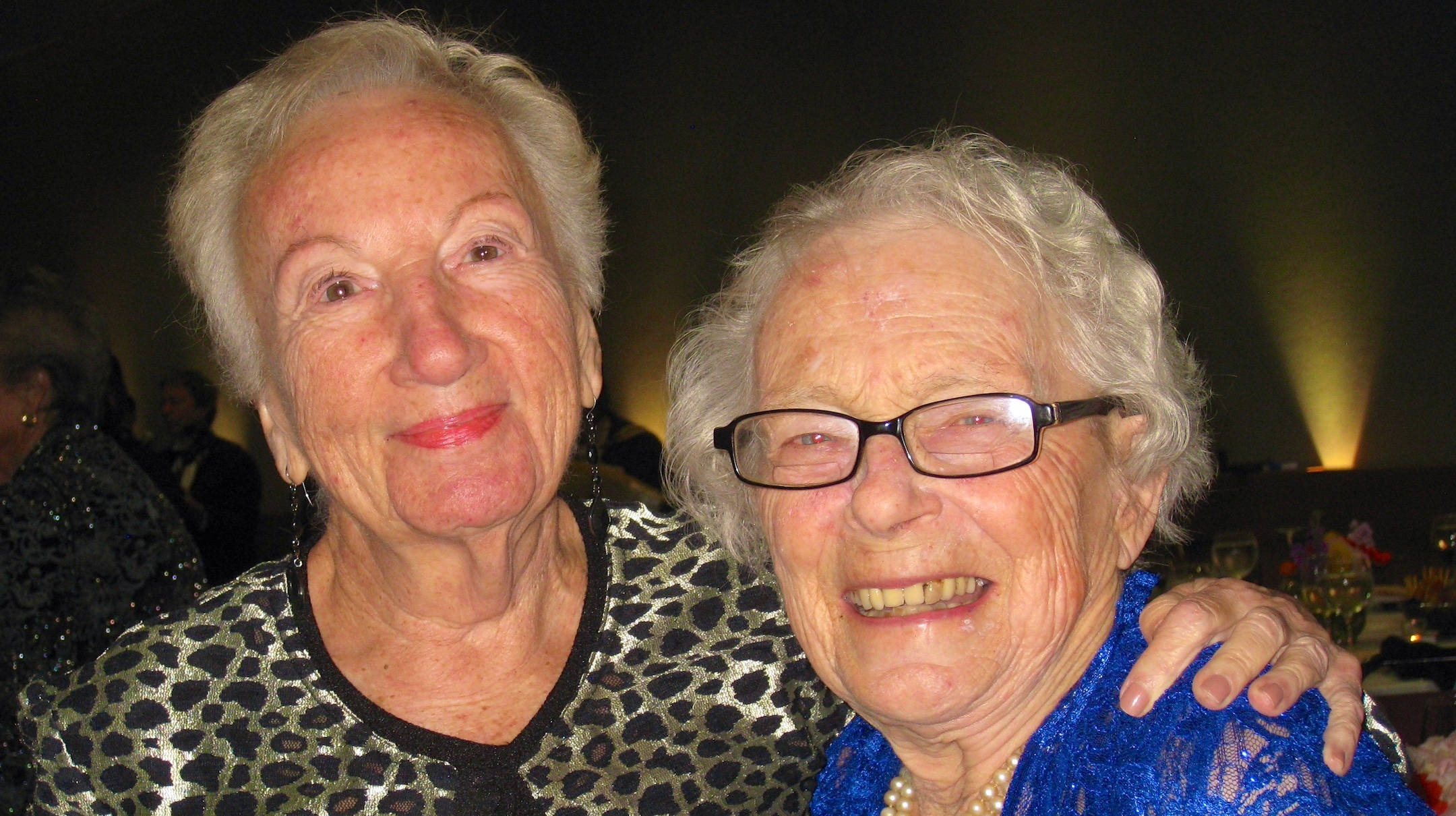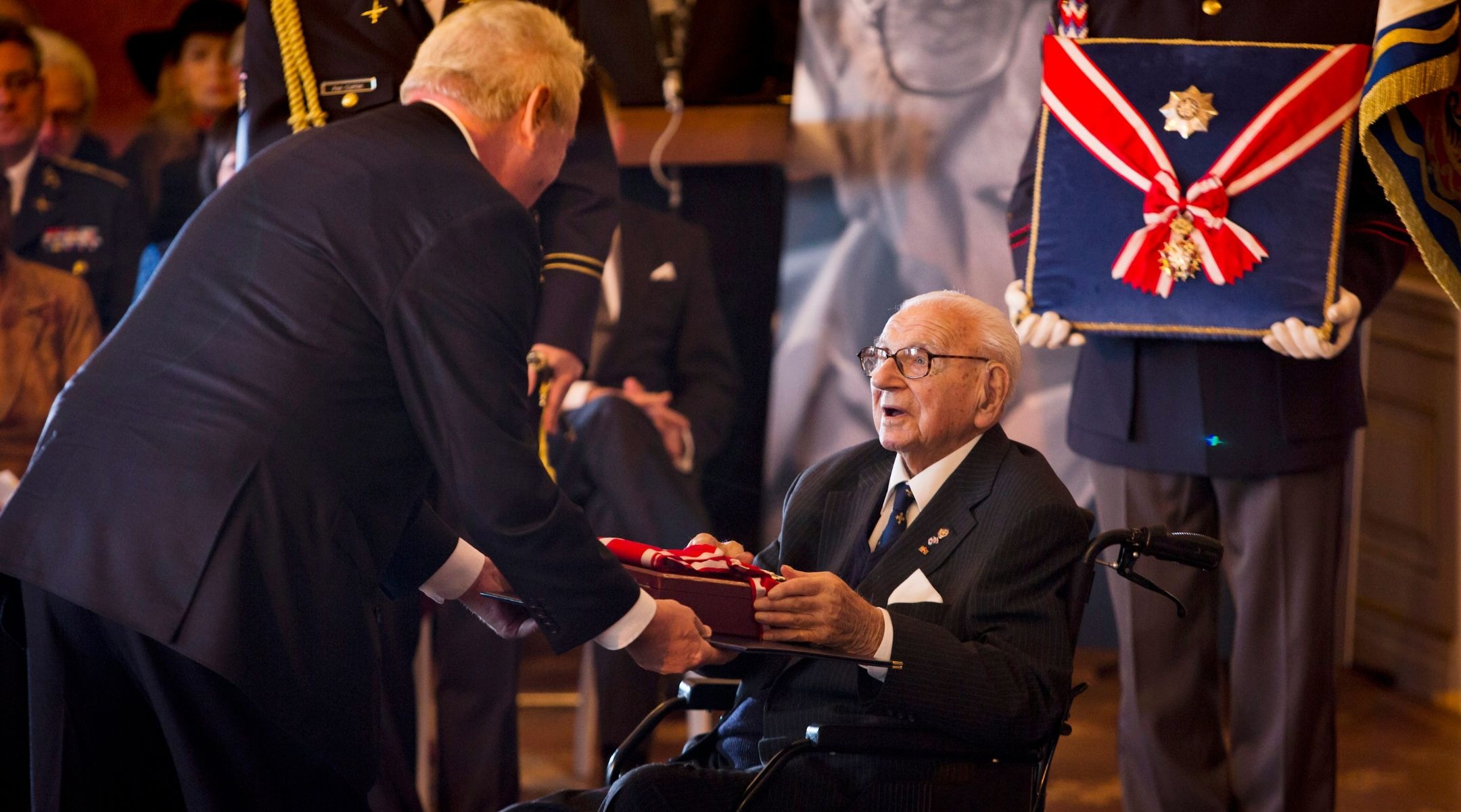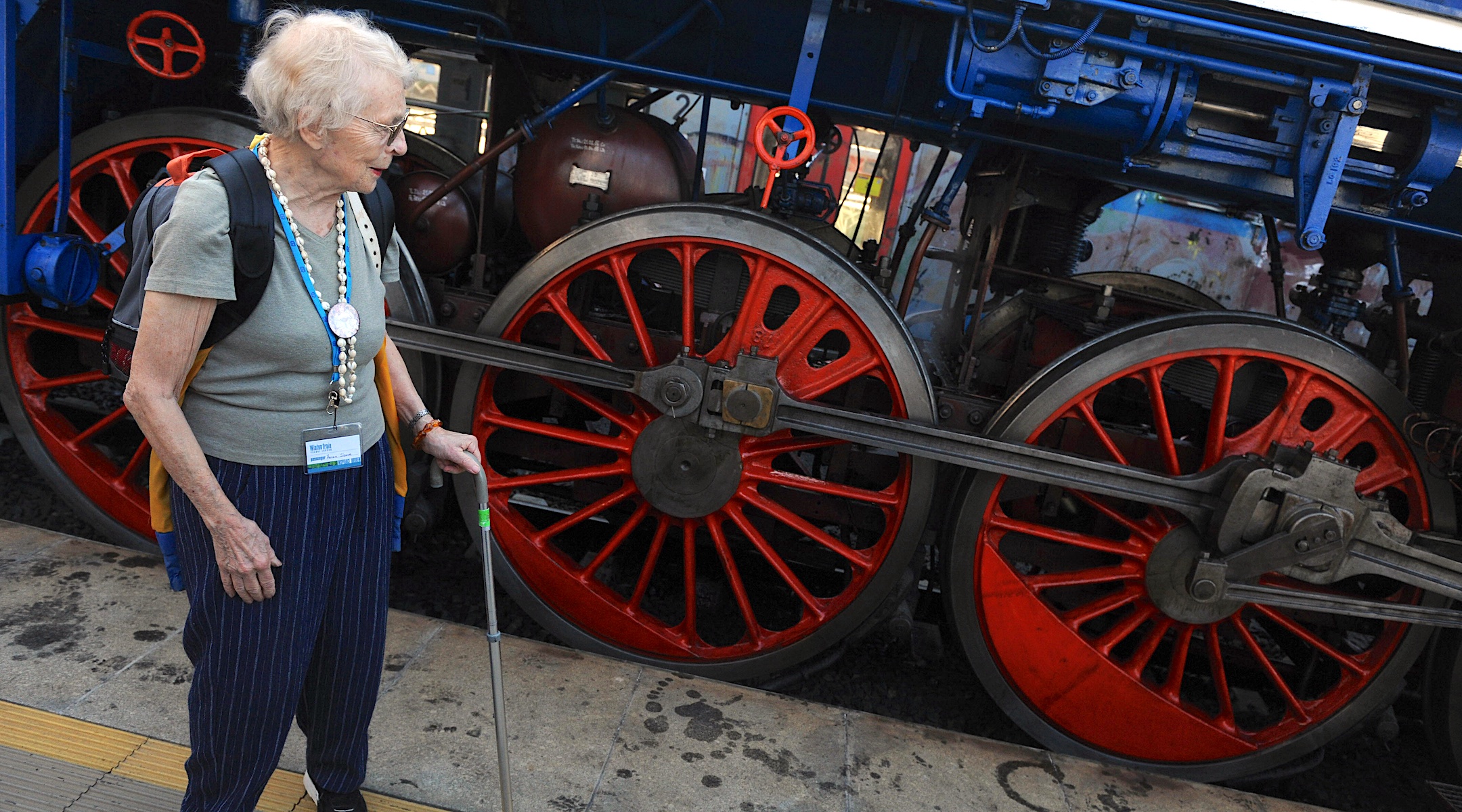(New York Jewish Week) — I’ve known Hanna Slome for my entire life: She and her husband Henry Slome were close friends of my parents. I knew that in the 1930s, Henry fled Nazi Germany and Hanna had somehow gotten out of Czechoslovakia, but I didn’t know the details of her escape.
Neither, it turned out, did Hanna. It was only in 1999 — 60 years after the event — that she discovered she was one of 669 children, the majority of them Jewish, who’d been saved from the Nazis by Nicholas Winton, a British stockbroker.
Winton’s extraordinary scheme to rescue Czech children by bringing them to the UK was first recognized publicly on a BBC television show in 1988, where he was reunited with dozens of those who owed their lives to him. Now, a new feature film, “One Life,” chronicles the courageous, perilous humanitarian project. Anthony Hopkins stars as Winton, who in early 1939 spent a month in Prague — just six weeks before Germany occupied Czechoslovakia — and concocted a complex plan to raise money, forge documents and find homes for as many Jewish children as possible in England.
Hanna — who turns 99 on Thursday — never spoke much about how she ended up in England. “I didn’t want to relive that part of my life,” she told me in a phone interview on Friday. It wasn’t until watching a documentary about Winton 25 years ago that she was astonished to find her name on the list of children who made it to Britain on the Czech “Kindertransport” negotiated by Winton.
Hanna Beer, who was 14 at the time, lived in the city of Ostrava. Her father and older brother had managed to get to London; she and her mother intended to follow them. Hanna believes her father must have gotten word of Winton’s enterprise, and signed her up for it.

Hanna Slome, right, and the author’s late mother, Bunny North, in a photo taken in 2017. (Steve North)
Whereas “One Life” depicts heart-wrenching scenes of parents saying goodbye to their children at the Prague train station ahead of the 700-mile journey west, Hanna has a more intimate memory of the night before her departure. “I was lying in bed with my mother,” she told me this week, “holding her hand and telling her I didn’t want to go. She promised me she would come to England very soon.” That never happened.
In the British capital, Hanna’s father and brother were living in a boarding house for refugees. Hanna lived with about five different foster families over the next few years. “But my father would sit on the steps of their houses on many nights, to make sure I got home safely,” she said. She worked as a maid, and to this day regrets that her formal education ended at age 14.
As World War II ended, Hanna’s father sent her to New York City, where she had relatives. Hanna believes her father already had received notice that her mother had been killed in Bergen-Belsen — and at some point, after putting his daughter on the ship, he returned to his apartment and took his own life. Her brother lived the rest of his life in England.
In the aftermath of such trauma and tragedy, Hanna married Henry Slome, settled in the Flushing section of Queens, New York, and had two children, Jesse and Judy. She is now the grandmother of seven and great-grandmother of nine. (Many are in Israel, as Judy made aliyah decades ago.) “I have a boyfriend who’s nine years younger than me,” Hanna, whose husband died in the early 1970s, told me. “He lives nearby and calls me every day!”

Sir Nicholas Winton, who saved 669 mostly Jewish children from the Nazis by organizing their escape from occupied Czechoslovakia to Great Britain, receives the Order of White Lion, the highest order of the Czech Republic, from Czech President Milos Zeman during the Independence Day at Prague Castle on Oct. 28, 2014 in Prague, Czech Republic. (Matej Divizna/Getty Images)
Hanna — self-sufficient and still living by herself in the family home — traveled to Prague in 2009 with her daughter for the 70th anniversary of her escape. She and some of the other children took that train ride again to London, where they were greeted by none other than Winton himself, then 100. He even took the group back to his spacious mansion in Maidenhead for a visit. (Winton died in 2015 at 106.)
Although the modest Winton was gratified by the attention and awards he received in his later years, including a knighthood, Hanna says he was haunted by the children left behind who ended up in the clutches of the Nazis. “I know he was unhappy that he only saved 669,” she said.
Winton’s largest transport of Czech Jewish children was scheduled to happen on Sept. 1,1939. But that day, Germany invaded Poland and the borders were closed. Winton later wrote: “Within hours of the announcement, the train disappeared. None of the 250 children aboard was seen again. We had 250 families waiting at Liverpool Street that day in vain. If the train had been a day earlier, it would have come through. Not a single one of those children was heard of again, which is an awful feeling.”
Hanna will mark her 99th birthday Thursday at the Museum of Jewish Heritage in Lower Manhattan, viewing another new Holocaust film, “Irena’s Vow,” about a Polish housekeeper who sheltered Jews.
Hanna has seen “One Life” several times, including at the New York premiere in January. She says watching the film was not especially disturbing to her. “The fact that I lost my whole family — and six million others — that’s what makes me emotional,” she said.
For a number of years, Hanna visited schools, telling the story of Sir Nicholas and her survival. Looking back now, just a year from the century mark, she sums it all up with gratitude and joy: “Oh, boy, what a life I’ve had. I’m so happy to be here.”
“One Life” is currently playing in select theaters nationwide, and is streaming on Amazon Prime, AppleTV and other platforms.
The New York Jewish Week brings you the stories behind the headlines, keeping you connected to Jewish life in New York. Help sustain the reporting you trust by donating today.





